![]()
Fri, Jan 07, 2011 | The Guardian: Document 1 and Document 2
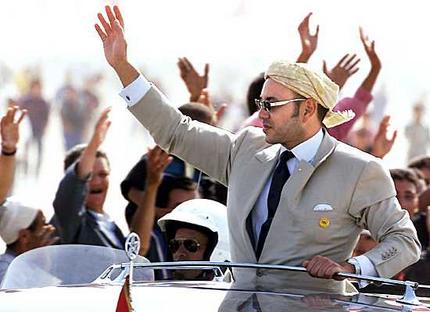
The Moroccan King, Mohammed VI, spends £3.6 million ($8.8 million) a month on staff wages, £97,000 on car repairs and almost £53,000 on animal feed, according to a breakdown of the palace budget that has enraged his poverty-stricken subjects. Details of the lavish spending - the first time that the finances of a royal Arab household have been revealed - show that the king costs Moroccan taxpayers £144.6 million ($353 million) a year, 18 times more than Queen Elizabeth. The palace spends £632,000 on electricity and water, £600,000 on telephones and £355,000 on petrol and fuel. The monthly clothes bill comes to £121,000, while stationery alone costs £61,000. The Moroccan royal family's private wealth is estimated at £2.1 billion-£2.7 billion by the US financial magazine Forbes. (Sydney Morning Herald, January 25, 2005 | Photo: AP).
WikiLeaks: Moroccan Royals Accused of Corruption
Morocco’s royal family is using the institutions of the state to “coerce and solicit bribes” in the country’s lucrative real estate sector, according to a leaked report from American diplomats.
Information about high-level corruption involving the rulers of Washington’s closest ally in north Africa was brought to the attention of the US consulate in Casablanca, Morocco’s commercial capital, by a businessman in 2009, leading diplomats to describe “the appalling greed” of those close to King Mohammed VI.
According to the US report, decisions involving Omnium Nord Africain (ONA), a holding company owned by the king, are made only by the king and two of his powerful associates. “To have discussions with anyone else would be a waste of time,” the head of the company is quoted as saying.
Royal involvement in business is a hot topic in Morocco but public discussion of it is sensitive. The US embassy in Rabat reported to Washington in a separate cable that “corruption is prevalent at all levels of Moroccan society”.
Document 1: Leading entrepreneur tells how institutions and processes of the Moroccan state are used by the royal palace to coerce and solicit bribes in the country’s real estate sector. Contrary to popular belief, corruption in this area during the reign of King Mohammed VI is becoming more pervasive.
Document 2: Moroccan sacking exposes king’s business role. Morocco’s largest conglomerate, the palace-controlled ONA, dismissed its CEO charging that he mismanaged the company’s telecommunications subsidiary. The abrupt nature of the dismissal has been the talk of Casablanca business circles and refocused attention on the king’s business activities.
Read related article “WikiLeaks cables accuse Moroccan royals of corruption” in the Guardian here.
Source: WikiLeaks
Friday, 11 December 2009, 17:42
S E C R E T CASABLANCA 000226
SIPDIS
STATE FOR NEA AND NEA/MAG
EO 12958 DECL: 12/10/2019
TAGS ECON, EINV, EFIN, MO, PGOV
SUBJECT: PALACE COERCION PLAGUES MOROCCO’S REAL ESTATE
SECTOR
Classified By: Consul General Millard for reasons 1.4 (b) and (d).1. (C) SUMMARY: At a XXXXXXXXXXXX meeting, XXXXXXXXXXXX told EconOff that major institutions and processes of the Moroccan state are being used by the Palace to coerce and solicit bribes in the country’s real estate sector. XXXXXXXXXXXX recounted his recent experience in the context of his XXXXXXXXXXXX real estate project, and specifically cited difficulties with Omnium Nord Africaine (ONA), the king’s holding company, which involved an imposed trip to Doha to meet with wealthy Qatari investors and Al-Jazeera officials. XXXXXXXXXXXX made clear to his Qatari interlocutors that Morocco’s major investment decisions were in reality made by three individuals in the Kingdom: XXXXXXXXXXXX, XXXXXXXXXXXX, and the King himself. “To have discussions with anyone else would be a waste of time”, XXXXXXXXXXXX reportedly told his Qatari interlocutors. XXXXXXXXXXXX argues that, contrary to popular belief, corruption in the real estate sector during the reign of King Mohammed VI is becoming more, not less, pervasive. END SUMMARY.
—————————
A TALE OF ROYAL PROPORTIONS
—————————
2. (C) XXXXXXXXXXXX said major institutions and processes of the Moroccan state are used by the Palace to coerce and solicit bribes in the real estate sector. While corrupt practices existed during the reign of King Hassan II, XXXXXXXXXXXX explained, they have become much more institutionalized with King Mohammed VI. Institutions such as the royal family’s holding company, Omnium Nord Africaine (ONA), which now clears most large development projects, regularly coerce developers into granting beneficial rights to ONA, he claimed.
3. (C) XXXXXXXXXXXX said the Palace, through ONA, strongly “encouraged” him to enter into a joint venture with them. Having refused the proposition and enduring months of standstill on the project, XXXXXXXXXXXX agreed to facilitate an ONA-led investment prospection trip to Qatar in exchange for sole proprietary rights in his own project. ONA officials acquiesced, according to XXXXXXXXXXXX
4. (C) XXXXXXXXXXXX andXXXXXXXXXXXX traveled to Qatar XXXXXXXXXXXX to meet with wealthy Qatari investors and Al-Jazeera at the request of XXXXXXXXXXXX. XXXXXXXXXXXX reportedly told his interlocutors that Morocco’s major investment decisions were effectively made by three individuals: the King, XXXXXXXXXXXX and XXXXXXXXXXXX. At the Qatar meeting, XXXXXXXXXXXX bluntly stated that “to have discussions with anyone else would be a waste of time,” XXXXXXXXXXXX told us. XXXXXXXXXXXX ONA, at the request of the Palace, partially agreed to honor its commitment, asking for only a five percent share in XXXXXXXXXXXX project.
——-
Comment
——-
5. (C) XXXXXXXXXXXX’s experience demonstrates a reality, of which most Moroccans dare only whisper — the influence and commercial interest of the King and some of his advisors in virtually every major real estate project here. A former U.S. Ambassador to the Morocco, who remains closely connected to the Palace, separately lamented to us what he termed the appalling greed of those close to King Mohammed VI. This phenomenon seriously undermines the good governance that the Moroccan government is working hard to promote.
MILLARD
Source: WikiLeaks
Thursday, 24 April 2008, 11:06
C O N F I D E N T I A L CASABLANCA 000081
SIPDIS
SIPDIS
STATE FOR NEA/MAG AND NEA/PI
EO 12958 DECL: 04/23/2018
TAGS ECON, EFIN, KDEM, MO
SUBJECT: MOROCCAN ROYAL FAMILY HOLDING ONA FIRES CEO
Classified By: Principal Officer Douglas Greene for reasons 1.4 (B) AND (D)
REF: (A) 05 CASA 1220 (B) 07 CASA 1691. (SBU) Summary: Morocco’s largest conglomerate, the palace-controlled ONA, dismissed its CEO on April 11, charging that he mismanaged Wana, the company’s telecommunications subsidiary. The abrupt nature of the dismissal has been the talk of Casablanca business circles for the past week, and has refocused attention on the king’s business activities. While the timing and manner of Bendidi’s dismissal were unexpected, business contacts in Casablanca did not find it unusual, noting historically high turnover in ONA’s executive suite. End Summary.
————-
ONA FIRES CEO
————-
2. (U) Omnium nord-africain (ONA), Morocco’s largest conglomerate, announced on April 11 that it had dismissed CEO Saad Bendidi for mismanaging Wana, the company’s telecommunications subsidiary. Bendidi had been the CEO of palace-controlled ONA since February 2005. Mouatassim Belghazi, an ex-civil servant and head of the Morocco-Emirates Development Company (SOMED), an ONA affiliate, was named to replace him within hours, prompting speculation that the dismissal was premeditated, despite ONA’s protestations to the contrary.
——————————
WHY DID BENDIDI GET THE BOOT?
——————————
3. (U) According to the unusually frank statement released by ONA’s Board of Directors, the company decided to fire Bendidi after 2007 results suggested that he had failed to develop Wana adequately. Board members took issue with the ex-CEO’s plan to infuse the telecommunications venture with an additional five billion dirham (USD 688 million) investment, and blamed him for “serious management failings in planning and strategic direction of the enterprise.” ONA reported that operating profits fell 29 percent as a result of Wana’s steep start-up costs. While Wana is only the third largest telecommunications provider in Morocco, behind French Vivendi-controlled Maroc Telecom and the Spanish-Portuguese company Meditel, ONA feels that the market has plenty of room for a successful third player.
4. (U) Reports in Morocco’s leading business paper, “La Vie Eco” on April 18, suggest that Bendidi’s fate was sealed not so much by Wana’s poor results, as by the view of ONA’s powerful board of directors that he had failed to adapt the company’s strategy in the face of the shortfall. In background interviews, company officials noted that slippage from Wana’s business plan was evident as early as October 2007, but that Bendidi failed to react, even after the ONA board engaged four separate sets of consultants to propose possible alternatives. Bendidi’s critics have alleged similar passivity in addressing poor performance in other divisions, including the Acima supermarket chain. A number of our contacts thus see little reason to doubt that Wana was at the root of Bendidi’s dismissal.
5. (SBU) Other contacts caution against taking ONA’s harsh public statements at face value, however. They note that the company’s fixed and mobile phone services have been on offer just over a year, barely enough time to evaluate its potential, and that additional investment is frequently required when companies seek to break into new fields. They add that ONA posted strong earnings in 2007, due in part to strong banking results and the sale of a stake in an insurance company. At the end of March, net income had risen from 959 million dirham a year earlier to 1.7 billion. ONA stock has risen 19 percent in 2008.
6. (SBU) Given such results, many believe there must be more to the story of Bendidi’s dismissal. Some viewed the fact that he was not given the chance to politely bow out, but was publicly fired, as further evidence that something more than poor performance was at play. One individual, for example, ascribed the shift to a desire to give a chance to the much-touted Belghazi, suggesting that poor Wana results offered a convenient pretext for change. Others speculated that a personality clash between Bendidi and Mounir Mahjidi, the King’s special secretary, may have played a role.
7. (SBU) Despite the intrigue surrounding Bendidi’s firing, members of the business community in Casablanca did not find it particularly unusual. A long-time franchise-holder pointed out that Bendidi’s predecessor, Bassim Jai Hokaimi, also did not last more than a few years at ONA’s helm. A piece in the French-language weekly Maroc Hebdo called Belghazi the newest initiate to the “ejector seat,” reinforcing the perception that the top job at ONA is a risky proposition. As one businessperson put it, the palace can be very demanding. When the palace calls, “if you don’t pick up the phone on the first ring, you’re in trouble,” she said.
8. (C) Comment: Whatever the true story, the manner in which Bendidi’s departure was handled has not shown ONA in the best light. As more than one commentator has noted, the flood of recriminations that have accompanied the firing offers a rich vein for Wana’s competitors to mine in months to come. The contretemps has led some to raise broader issues as well, however. “Le Journal’s” lead editorial seized on the dispute to renew the publication’s longstanding call on the king to exit the business world, citing the inherent conflict between his role as ultimate arbiter of the Moroccan system and leading businessman and banker within it. ONA’s “incredible communiqu,” the journal wrote, not only “shattered” the credibility of the group, but also “cast doubt on the transparency of the king’s business affairs,” an “explosive situation” at a time when Moroccans face rising prices for goods whose production and distribution is often assured by the king’s own companies. These issues too have long sparked hushed debate in Moroccan business circles, but few expect the royal role in ONA to change anytime soon. End Comment.
GREENE



 RSS
RSS


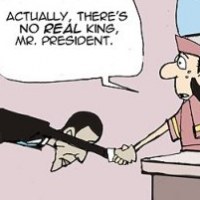
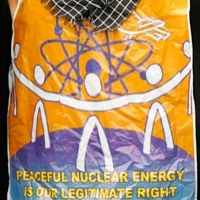
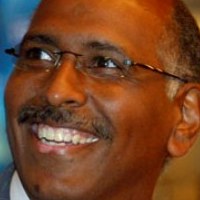
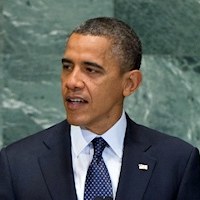
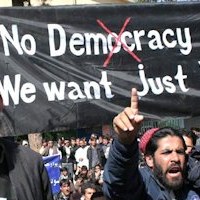




#WikiLeaks: #Moroccan #Royals Accused of Corruption | #Morocco #Cablegate #US #Maghreb http://j.mp/ih8xn7
RT @CrethiPlethi: #WikiLeaks: #Moroccan #Royals Accused of Corruption | #Morocco #Cablegate #US #Maghreb http://j.mp/ih8xn7
WikiLeaks: Moroccan Royals Accused of Corruption
https://www.crethiplethi.com/wikileaks-moroccan-royals-accused-of-corruption/usa/2011/
20 02 2011 Faresvox presents foum cha3b
http://www.youtube.com/watch?v=DJnh8ilZBy4